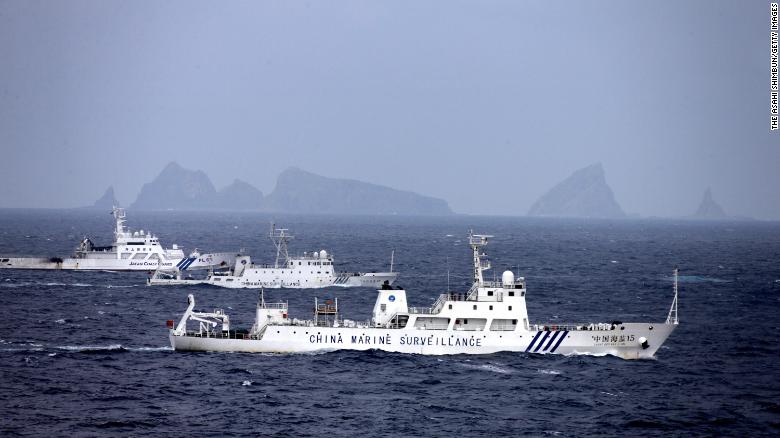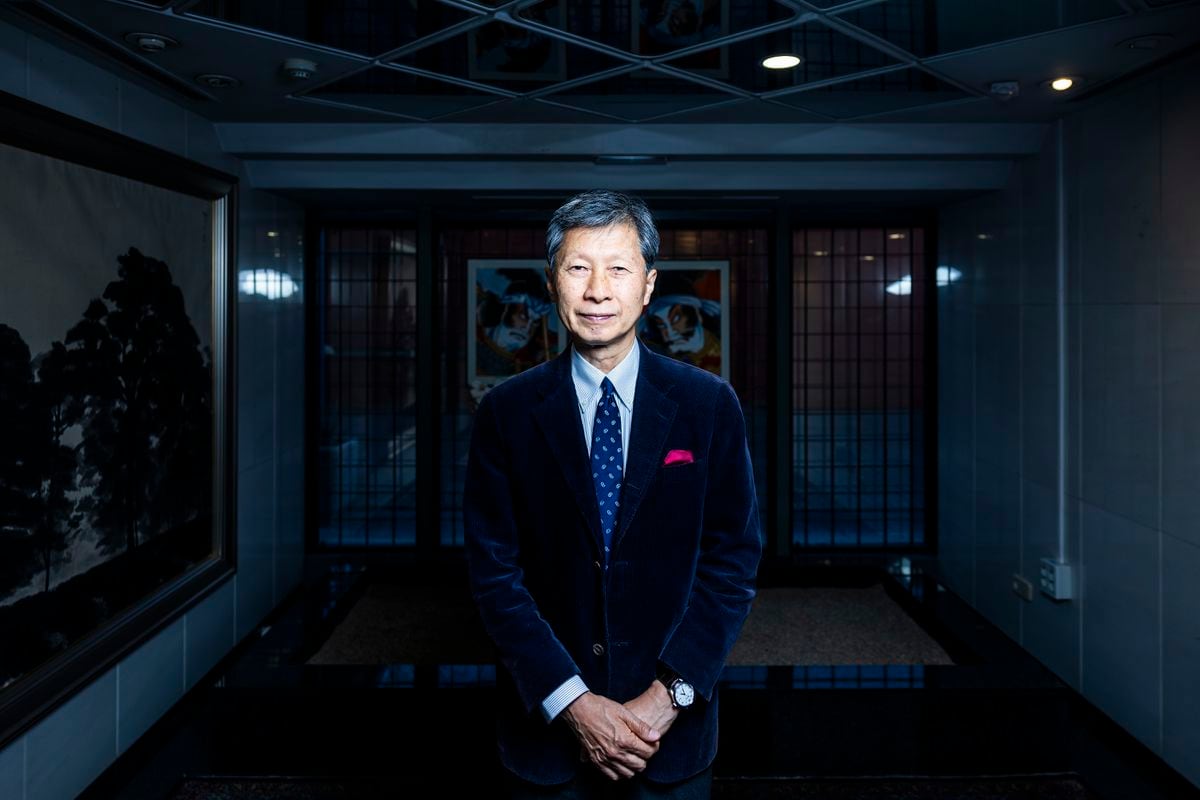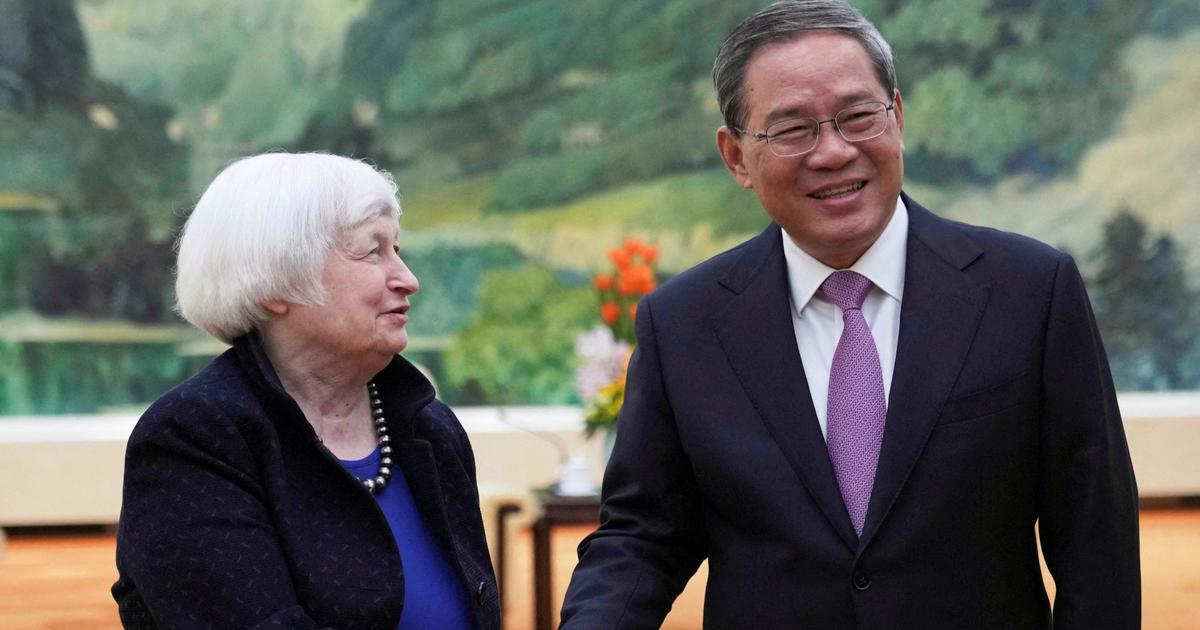China says it avoided space catastrophe caused by Musk 1:00
(CNN) -
The defense ministers of Japan and China agreed on Monday to establish a joint communication hotline by the end of 2022, according to a press release from Japan's Defense Ministry, amid tensions between Asia's neighbors. Oriental.
China's Defense Ministry confirmed the hotline agreement in a statement, without giving a date for its implementation.
China warns of possible collision between Musk satellites and its space station
The agreement - reached during a two-hour videoconference between the Japanese Nobuo Kishi and the Chinese Wei Fenghe - comes when their countries are in dispute over Taiwan and over issues in the East and South China Seas.
The ministers discussed those differences during the meeting, including their competing claims about a chain of uninhabited rocky islands in the East China Sea controlled by Japan, but which China claims as its sovereign territory.
Since 1972, Japan has administered the islands, known as Senkakus, in Japan, and Diaoyus, in China, but tensions around the chain, located 1,900 kilometers southwest of Tokyo, have been latent for years.
advertising
US adds 12 Chinese companies to trade blacklist 0:50
China has been sending government vessels, including coastguard vessels, up the chain with increasing frequency, something Japan sees as a challenge to its internationally recognized sovereignty over the islands.
What are America's warships doing sailing off the coast of China?
"Minister Kishi stated that Japan opposes attempts to unilaterally change the
status quo
through coercion and that Japan is very concerned about such actions, while pointing out concrete facts such as the activities of the ships of the People's Army of Liberation and the Chinese coastguard, "read a statement from the Japanese Defense Ministry published after the meeting of the ministers.
In a statement after the meeting, China maintained its claims of sovereignty over the islands.
"China will firmly safeguard its territorial sovereignty and maritime rights and interests. The two sides should focus on the general interests of bilateral relations and strive to maintain stability in the East China Sea," said a statement from the Defense Ministry.
The situation in Taiwan
While the Senkakus / Diaoyus have been at the center of tensions between Japan and China for years, Tokyo is showing growing concern over the situation around Taiwan, the self-governing island 200 kilometers off the east coast of China, but also just 110 kilometers from the southern Japanese island of Yonaguni, in Okinawa prefecture.
The countries with the most debt in the world 0:51
Taiwan and China have been ruled separately since the nationalists withdrew to Taiwan at the end of the Chinese civil war, more than 70 years ago.
Taiwan is now a flourishing democracy, but the ruling Chinese Communist Party still regards the island as an inseparable part of its territory, even though it has never controlled it.
Everything you need to know about the dispute between Taiwan and China
Japan, which controlled Taiwan from 1895 until the end of World War II, sees the island as critical to its national security.
When Tokyo published its annual defense white paper in July, it contained its strongest language on Taiwan, saying that "stabilizing the situation around Taiwan is important for the security of Japan."
At that time, Kishi said he had to be watched with a "sense of crisis."
In an interview with CNN in September, he gave details.
"What is happening in Taiwan is directly related to Japan," he said, noting that the island is next to the "energy lifeline" of his country.
5 things: earthquake shakes southwest China 2:40
"Ninety percent of the energy that Japan uses is imported through the areas surrounding Taiwan," Kishi said.
In his meeting with Wei on Monday, Kishi "declared that peace and stability across the Taiwan Strait are extremely important for the security of Japan, as well as for the stability of the international community," according to the statement from the Defense Ministry. Japanese.
Chinese maritime surveillance vessels (front and middle) sail with a Japanese Coast Guard ship near Kitajima and Minamikojima, on the disputed Senkaku Islands, on April 23, 2013.
Kishi also expanded that language to encompass the South China Sea.
Beijing claims almost all of this 1.3 million square kilometer waterway as sovereign territory and in recent years has built military fortifications on several islands.
But some islands and waters in the South China Sea are claimed by several surrounding states and islands, such as the Philippines, Vietnam, Malaysia, Indonesia, Brunei and Taiwan.
Beijing has prevented commercial activity, such as fishing or mineral prospecting, in some of those countries, as it claims ownership of a territory that it claims has belonged to China for hundreds of years.
New Chinese Laws
Earlier this year, China instituted new laws to enforce its claims on the South China Sea, including requiring that a number of foreign vessels have to provide detailed information to Chinese authorities when entering "waters. Chinese territorial ".
Tensions between China and Taiwan are the worst in 40 years 6:46
This followed a law introduced in February that allows the Chinese coastguard to use weapons to protect China's national sovereignty, an action previously reserved for units of the People's Liberation Army.
Kishi told Wei on Monday that "Japan strongly opposes any unilateral attempt to change the
status quo
through coercion and any activity that increases tension on the South China Sea issue," specifically citing the new coastguard law, according to the Ministry of Defense of Japan.
The Japanese defense chief also expressed concern about China's military development, which has seen the People's Liberation Army Navy become the largest in the world in recent years.
However, Japan has also increased its defense budget, adding $ 6.75 billion to its already record annual military spending in November in an attempt to bolster air and maritime defenses.
Tokyo has also been carrying out a defense surge for years in the face of challenges from China and North Korea, including purchasing US-designed F-35 stealth fighter jets and converting its so-called helicopter destroyers. on aircraft carriers, giving Tokyo that kind of warship for the first time since World War II.
China Japan




/cloudfront-eu-central-1.images.arcpublishing.com/prisa/FIJVMOBHZRWVDBKS3NAQ2M4JRE.jpg)



